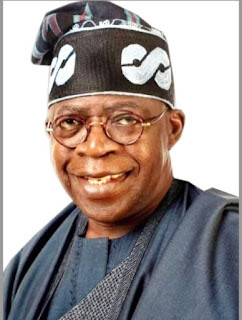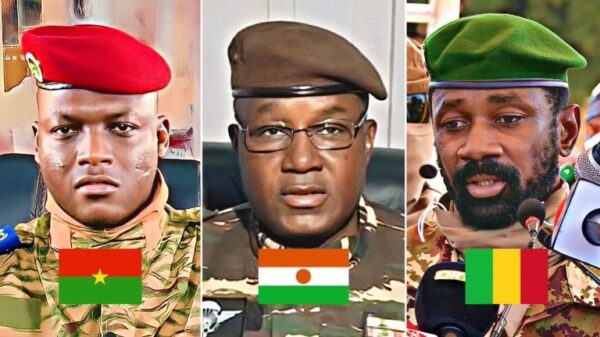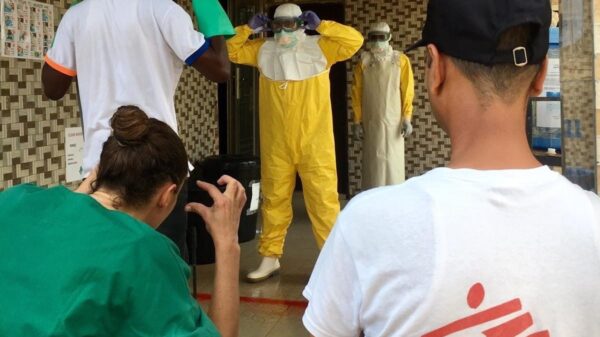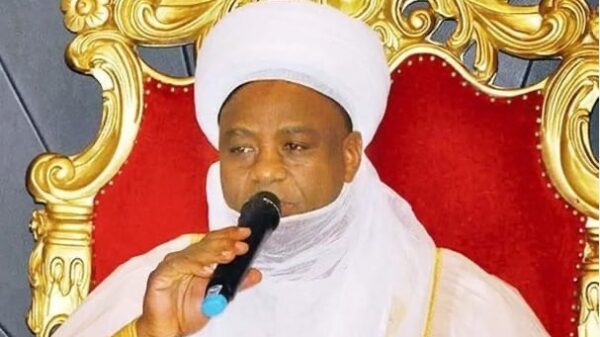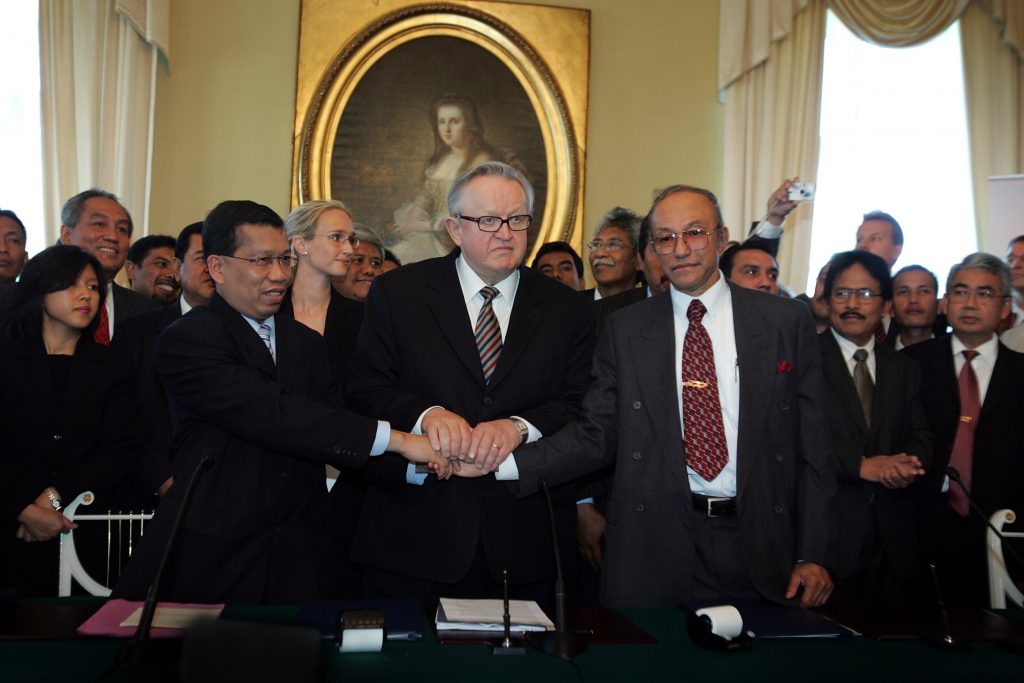Adnan Adams Mohammed
During his lifetime, the only designation that was ‘unconfirmed’ on him was the United Nations Secretary-General’s position, although, the late Martti Ahtisaari’s international servantship exceeded the work of that office.
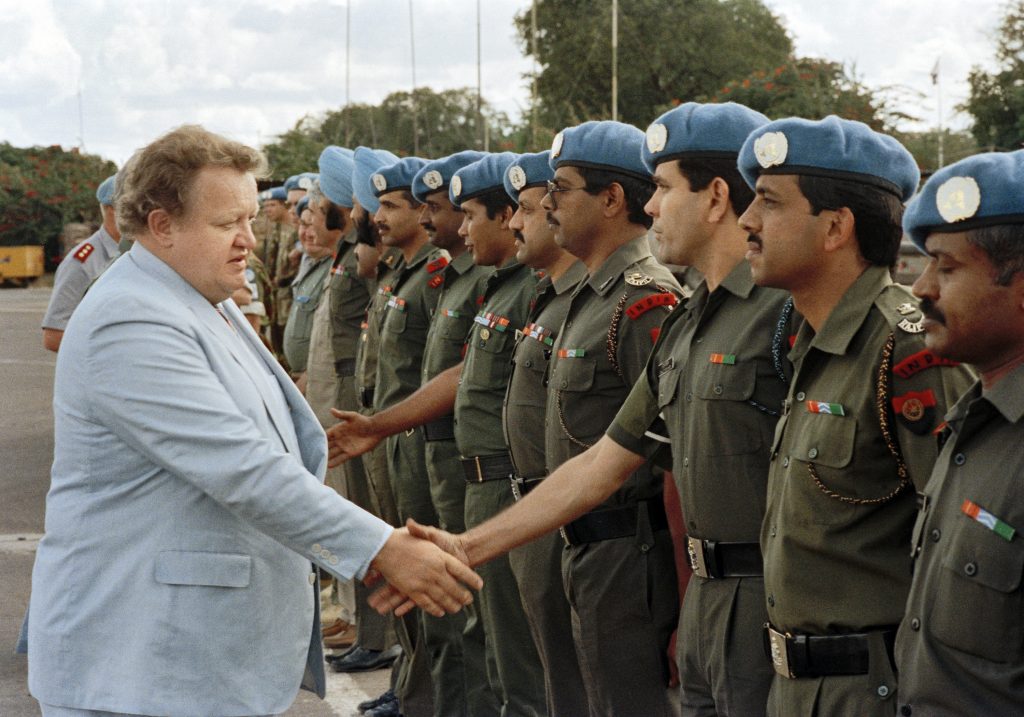
His Excellency Ahtisaari was President of the Republic of Finland from 1994 to 2000. Prior to that he had a distinguished career at the United Nations and the Finnish Foreign Ministry.
His distinguished service to humanity across the globe won him the Nobel Peace Prize in 2008. In the periods that shined him was notably most conflict-prone across the global, yet, he excelled through with the peace and humanity project.
According to many commentators, Ahtisaari can be considered as the ‘most successful peace mediator of all times’. For almost nearly four decades he worked hard to prevent andresolve conflicts throughout the world.
At a time the world yearn for his arts of peace mediation as the world is troubled with the Israel-Gaza ‘anti-humanity war’, was when the Lord called on him.
The demise of H.E Martti Ahtisaari shocked the globe. He passed away in Helsinki on October 16, 2023 at age 86.
“The world has lost a truly exceptional person who devoted his life to peace. Martti Ahtisaari strongly believed that peace is a question of will and that all conflicts can be resolved, always seeing opportunities where others saw problems. Perhaps now more than ever, the world needs people like him”, says Alexander Stubb, CMI’s Chair of the Board.
CMI is the short of Crisis Management Initiative (CMI), an independent non-governmental organisation, founded in the year 2000 to continue the legacy of Ahtisaari conflict resolution which has been rebranded as CMI – Martti Ahtisaari Peace Foundation.
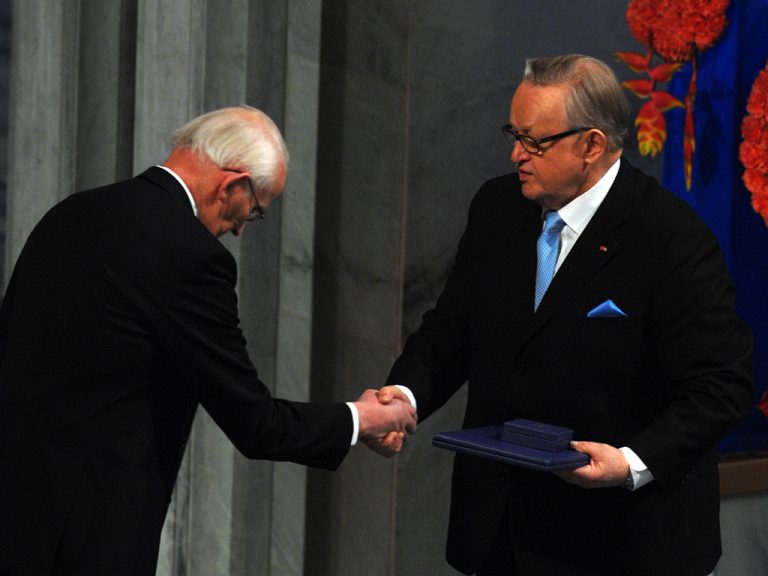
Moreso, Namibian President, Hage G. Geingob, eulogize the passing away of Ahtisaari described him as a ‘friend of the Namibian liberation struggle’.
“I have learned with utmost sadness about the passing of the former President of Finland, H.E. Martti Ahtisaari, a friend of the Namibian liberation struggle and a leading peacemaker who played through the United Nations a pivotal role in midwifing the birth of a new Namibia.
“The history of Martti Athissari is incomplete without Namibia, a country he was associated with in the many roles that he occupied.
First through his appointment as a senator to the Council of the United Nations Institute for Namibia (UNIN) in 1975, a position which later led to his appointment in 1978 by United Nations Secretary General Kurt Waldheim as the Special Representative of the Secretary General for Namibia.”
In 1989, he was appointed by the United Nations Secretary General to assume the difficult task as the leader of the United Nations Transition Assistance Group (UNTAG) in Namibia, which was globally hailed as a model in dealing with complex transitions from conflict to peace.
“Therefore, today, we are not only mourning the loss of former President Ahtisaari, a friend and one of us, but we are also reaffirming the rich legacy of peace and the outstanding international public service of a Nobel peace laureate with an indelible association with Namibia”, Hage G. Geingob, on behalf of the people and the Government of the Republic of Namibia extended his condolences to the Ahtisaari family.
CMI’s footprint in Africa with concentration on the Sub Saharan
CMI’s programme is focused on making meaningful contributions to peace processes in four regions – the Middle East and North Africa, Eurasia, Sub-Saharan Africa and Asia.
A strong focus on women’s participation and gender-specific aspects of conflict is extensively integrated into all parts of CMI work.
Today’s violent conflicts tend to be highly complex. They have wide regional impact and involve multiple actors and a diverse array of political interests. In such conflicts, unofficial conflict resolution actors like CMI have some important advantages over official bodies. Independent organisations bring to the negotiating table not only their own wealth of experience and expertise, but also opportunities that are not always open to state-related bodies. And as an independent, conflict resolution organisation with Finnish origins, CMI has the added benefit of being truly impartial and without a power agenda of its own and is thus able to work in the most challenging regions in the world. Each context and conflict is unique – they involve different factors, actors and dynamics. Similarly processes to resolve them are also unique.
Sahel
CMI’s work in the Sahel region aims to increase the inclusivity of peace processes and to provide spaces for national level dialogues, promoting confidence-building among conflict stakeholders. In the Lake Chad Basin region, CMI supports addressing the root causes of violence through dialogue, with a focus on the Youth, Peace and Security agenda.
CMI delegation met with Ambassador Mamman Nuhu (third from the right), Executive Secretary of the Lake Chad Basin Commission, to discuss the way forward for Lake Chad Basin Governors’ Forum, established in May 2018.
The Sahel is a geographical region stretching from Senegal to Djibouti, on the southern side of the Sahara desert. The multiple ongoing conflicts in the Sahel generally stem from democratic governance deficits, which have led to a lack of basic services in remote areas. Furthermore, the gap between the urban elites and the rural population is continuously widening in this region.
In some cases, violent extremist groups have stepped in to fill the power vacuum left by the absence of central governments. During 2022, violence by armed groups has intensified especially in central Mali and northern Burkina Faso. According to a civil society report, 8 civilians on average die from violence every day in Mali, Burkina Faso and Niger. Despite the several extensive multi-national military operations to counter violent extremism in the region, instability is gradually spreading to the south towards the coastal West African states.
A more comprehensive approach needed
Climate change and rapid population growth are fueling conflicts by intensifying competition over scarce resources between communities. In addition, in many cases the multiple and overlapping crises have an inter-communitarian layer.
The response by regional and international actors has mostly consisted of military and military training operations. They have been accompanied by large development and humanitarian components, but progress has been slow and results patchy in the volatile context.
However, there are signs that some countries in the region are opening up for community-based mediation efforts and national- or local-level dialogue initiatives. These types of initiatives are welcomed alternatives to the purely military approach. It is essential that women, youth and marginalized minority groups are included in these dialogue processes, in order to commit all parts of the society in the results. You can read a story about the importance of including women’s views in peacebuilding here.
CMI promotes non-military solutions and inclusive dialogue
CMI sees that a lasting peace in the Sahel region can only be achieved through inclusive and dialogue-focused peace-making processes.
In its Sahel project initiated in 2021, CMI contributes to selected national level peace processes by promoting dialogue and a more comprehensive approach to tackle violence, more inclusive peace processes and confidence-building among conflict stakeholders. The project builds on CMI’s long track record with trusted contacts and networks within the national contexts and the international community in the Sahel region.
As a trusted partner in the region, CMI cooperates with national governments and non-government actors as well as regional organizations, such as ECOWAS. Furthermore, complementarity is ensured through coordination of efforts with the other organizations working on peacebuilding in the Sahel area.
Changing patterns of conflict in the Lake Chad Basin
The crisis of the Lake Chad Basin (LCB) region gained international attention as from 2009 due to the violence exercised by the Islamist Boko Haram insurgency in northeastern Nigeria. Still today attacks are frequently carried out by religious extremist groups in Nigeria as well as in bordering areas in Niger, Chad and Cameroon. The patterns of extremist activity have further complexified after the death of Boko Haram leader Abubakar Shekau in 2021.
Millions of people have been forced from their homes, and almost 10 million people are in need of humanitarian support to survive. Once a wealthy hub for continental and international trade, the region has turned into one of the poorest and most under-developed in the world. Rapid population growth and the disastrous impact of climate change on livelihoods increase the complexity of the regional crisis. To improve the situation, security, humanitarian and development needs cannot be addressed in a siloed manner.
Women and youth not sufficiently represented
The severe neglect caused by a long-term governance deficit has harmed the trust between local populations and state actors. The combination of the governance gap, frustration and vulnerability has been used by the extremist groups to gain influence and recruit especially young people for their purposes.
The often-limited participatory space, resources and capacities of citizens prevent them from contributing to find solutions to the situation. Especially women and youth are not sufficiently represented and participating in decision-making spaces despite being the most affected.
An additional challenge is posed by the impact of climate change on already scarce resources and vulnerable rural communities. It has compounded conflict drivers and weakened the ability of communities to build resilience in the crisis context.
CMI supports regional peacemaking initiatives
Arms have proven insufficient to achieve human security and stabilization in the Lake Chad Basin. A complementary and coordinated approach to address the root causes is therefore needed. Accordingly, a Regional Stabilization Strategy (RSS) for the key crisis-affected areas was developed by the Lake Chad Basin Commission (LCBC) and the African Union (AU) in 2018. The RSS provides the overarching framework for the tailored support provided by CMI. Our support is furthermore based on the needs of and demands of stakeholders in the LCB as well as on complementarity to activities of peer and partner organizations or other regional and international actors.
CMI believes that sustainable conflict resolution in the Lake Chad Basin can only be achieved if it entails inclusive cross-border dialogue and efforts to strengthen political cooperation and regional ownership. CMI therefore supports the agency of civil society actors, especially youth, so that they can meaningfully engage and contribute to the sustainability of peace processes.
Earlier, CMI supported the LCB Governors’ Forum and contributed to the enhanced meaningful engagement of civil society actors in the regional stabilization and peacebuilding efforts. Currently, CMI supports the activities and builds the capacity of the Youth Network for the Lake Chad Region, a network of young peacebuilders with sections in Nigeria, Niger, Chad and Cameroon.
Women in Peacemaking
Women are the largest group affected by violent conflicts and yet systematically excluded from their resolution. This reality is recognized by the international community , but real change on the ground is slow to come. Gender equality and inclusivity are core operating principles of CMI. In our work, we strive to highlight the indispensable role of women in building and sustaining peace, and aim to widen the space for women to participate in peace processes. If we miss out on half of the population in efforts to resolve conflicts, we miss opportunities for a better peace.
Promoting women’s role in peace processes
One of the key principles guiding CMI’s work is inclusivity.
In 2000, the United Nations adopted a ground-breaking Security Council Resolution 1325 on Women, Peace and Security, the first of eight such resolutions recognising women’s rights as indispensable to international peace and security. Despite these normative advances, women and their views are still gravely underrepresented in peace processes worldwide. CMI works to change this reality by supporting women in conflict-affected countries to access and influence peace processes; and by enhancing inclusive and gender-sensitive mediation capacities.
Inclusivity as a key principle
Inclusivity is one of CMI’s core operating principles. We highlight the importance of women’s participation in building and sustaining peace, and work to create a greater role for women in peace processes. Concretely, we do this by supporting women from diverse social and political backgrounds in conflict-affected countries to come together and build consensus on the issues that matter to them, and to advance these priorities in conflict resolution processes. For instance, in Libya CMI supports an informal working group of civil society leaders to advance key issues concerning women in the country’s transition to peace and stability.
Advancing gender-sensitive mediation
Another way CMI advances inclusivity in conflict resolution is by promoting gender-sensitive mediation. One of our goals is to make it standard practice for gender considerations to be included in all stages of peace processes and subsequent agreements.
CMI promotes a nuanced understanding of gender in peace and conflict, and supports mediators in tackling these issues in practice. An important part of our work in this regard is our annual High-Level Seminar on Gender and Inclusive Mediation, organised in partnership with United Nations Department of Political and Peacebuilding Affairs (DPPA) and the Peace Research Institute of Oslo (PRIO).
CMI works with women mediator networks
CMI is an operational partner of the Nordic Women Mediators, a growing network of peace and security professionals that aims to advance the inclusion of women at all levels of peace processes from grassroots efforts to high-level negotiations. In this capacity, CMI also supports the collaboration between regional women mediator networks across the globe. These networks play a role in promoting inclusive conflict resolution practices and mobilising support to women in ongoing peace processes.
Policy and Learning
CMI contributes to the development of the field of peace mediation in three ways: i) the cumulative lessons learned from CMI’s experience in different contexts and themes, ii) the expertise and experience of President Ahtisaari as a leading global mediator, and iii) CMI’s partnerships in the international peacemaking community, convening platforms and dialogue with peer organisations, governments, think tanks and international and regional organisations. Within this focus, special effort is made in seeking complementarity with Finnish efforts to support the international peacemaking community, and in seeking innovations for joint development with other actors.
Digital Peacemaking at a Glance
Digital technologies are playing an increasingly important role in exacerbating conflicts and in the conduct of peacemaking, thus creating new risks and opportunities for peacemakers. On the one hand, not only can digital technologies be used to fuel tensions through the conduct of cyber-attacks or the dissemination of hate speech and disinformation, but they can also be used to derail dialogue processes through the leaks of sensitive information or the targeting of participants. On the other hand, peacetech – or digital technologies designed to support peacemaking efforts – can, inter alia, be used to better understand conflict, to render peace processes more inclusive, to better communicate about a process, to increase the security of exchanges between participants or to enable more efficient collaboration between conflict stakeholders.
More than Tech for Peace
Although the use of digital technologies for peacemaking has alarming downsides, mastering their use bears many benefits. In addition to opening new avenues for peacemaking in practice, the use of digital technologies may have a positive impact on other, cross-cutting issues, by improving inclusion and lowering environmental impact. For example, digital technologies can help identify and integrate conflict stakeholders’ views and interests in an ongoing or upcoming process, overcome logistical challenges preventing some from participating, better inform conflict stakeholders and reduce the costs of consultations. Furthermore, as virtual dialogue becomes more common, the use of digital technologies may lead to reductions in travel-related CO2 emissions, which constitute a significant share of the emissions generated through peacemaking.
CMI’s Approach
Building on CMI’s experience in peacemaking and existing trust built with conflict stakeholders through years of engagement in conflict resolution, CMI aims to introduce digital technologies in peacemaking processes to complement traditional methods. The implementation of new technologies is always a response to a practical need identified by peacemakers and we therefore work in close collaboration with such actors to support their work. Furthermore, aligned with CMI’s key principle of inclusivity, we aim to leverage the potential of digital technologies to increase the inclusivity of peace processes and contribute to gender equality. Lastly, in order to succeed in digital peacemaking, we collaborate closely with Finnish and international organisations and technology companies to tap into the technological expertise necessary for the development of suitable digital solutions.
Shaping the Future of Digital Peacemaking
Strengthening the integration of digital technologies in CMI’s operations and driving change within the industry constitutes the logical continuation of work the organisation started back in 2004 with its first exploration of digital technologies. In addition to benefitting from an established track record in using digital solutions, CMI is building on a strong network of partners in the technology, innovation and cybermediation sectors. CMI is a member of the CyberMediation Network, which aims to inform mediation practitioners about the impact of digital technologies on mediation. CMI also works in close collaboration with a rich set of actors, from the Finnish Ministry for Foreign Affairs to the UN Department of Political and Peacebuilding Affairs (UNDPPA). With the support from and proximity with a very rich and innovative technology and start-up sector in Finland, the organisation finds itself well-placed to position itself as a leader in digital peacemaking.
Major milestones/his legacy
Let’s look at some major milestones of Martti Ahtisaari’s career
1989–1990: Independence of Namibia
As UN Commissioner for Namibia from 1977 to 1981 and later as the UN Secretary-General’s Special Representative for Namibia from 1989 to 1990, Martti Ahtisaari played a special role in Namibia’s independence from South Africa. Namibia was Ahtisaari’s first peace mediation mission. He was involved with Namibia for a total of 14 years. From 1987 to 1991, Ahtisaari was also the UN Under-Secretary-General in charge of administrative and economic affairs.
U.S. Secretary of Defense William S. Cohen (left), Finnish President Martti Ahtisaari (2nd from left), and Russian Minister of Defense Igor Sergeyev (2nd from right) meet in Helsinki, Finland, on June 17, 1999. The men are discussing Russia’s participation in the peacekeeping efforts in Kosovo. Photo: U.S. Department of Defense
1994–2000: President of Finland
Ahtisaari was the first President of Finland to be elected by direct popular vote. During his presidency, Finland joined the European Union and unemployment fell drastically from the high rate of the recession of the early 1990s.
In 1997, by Ahtisaari’s initiative, Finland hosted a summit between Russian President Boris Yeltsin and US President Bill Clinton.
At the end of his presidency in 1999, Ahtisaari, former Russian Prime Minister and Special Envoy Viktor Chernomyrdin, and US Deputy Secretary of State Strobe Talbott negotiated a peace agreement which led to the withdrawal of Serbian troops from Kosovo.
In 2000:
Supporting the Northern Ireland peace process
At the request of the parties involved, Ahtisaari, together with South African statesman Cyril Ramaphosa, acted as weapons inspector concerning weapons caches of the Irish Republican Army. The inspectors played a central role in enabling the Northern Ireland peace process and were also an important part of Finland’s broader contribution to the resolution of the conflict.
Establishment of conflict resolution organisation CMI
Following his term as President, Ahtisaari founded conflict resolution organisation Crisis Management Initiative (CMI). Ahtisaari wanted his legacy to be continued by an organisation able to address the root causes of conflicts as effectively as possible. CMI – Martti Ahtisaari Peace Foundation has been implementing Ahtisaari’s vision for more than 20 years now and has become one of the world’s leading mediation organisations.
The Aceh peace accord was signed by the Minister of Justice of the Government of Indonesia Hamid Awalud and the leader of the delegation of the Free Aceh movement Malik Mahmud and was witnessed by President Ahtisaari. Photo: Jenni-Justiina Niemi.
In 2005:
Aceh peace agreement
Ahtisaari and CMI acted as mediator in the peace talks between the Indonesian government and the Free Aceh Movement. After seven months of negotiations, the peace agreement signed in Helsinki ended nearly three decades of violence and gave the Aceh province special self-government. The Aceh Monitoring Mission (AMM), established under the Ahtisaari plan to oversee the peace process, worked in partnership with the EU and ASEAN member states to support the implementation of the peace process. The peace process has laid the foundations for positive economic developments in the province of Aceh. Poverty and unemployment in Aceh have fallen significantly.
2005–2008:
Negotiations on the status of Kosovo
In late 2005, Ahtisaari was appointed as Special Envoy of the UN Secretary-General to lead negotiations on the status of Kosovo. Negotiations continued until March 2007, when Ahtisaari presented his plan for Kosovo’s future. Kosovo declared independence from Serbia in 2008.
2008: Nobel Peace Prize
In December 2008, Ahtisaari became the first Finn to receive the Nobel Peace Prize for his “great efforts, on several continents and over more than three decades, to resolve international conflicts“. In his acceptance speech, he highlighted his idea of peace as a matter of determination (“Peace is a question of will”). Watch the acceptance speech here.
Ahtisaari’s legacy
Throughout his career, Martti Ahtisaari made a significant contribution to the development of international peace mediation. He chaired boards of many international organisations and foundations, including the International Crisis Group, the East-West Institute and Interpeace. He also co-founded the European Council on Foreign Relations and was active in The Elders.
He chaired his own peace mediation organisation, CMI – Martti Ahtisaari Peace Foundation, until 2017 when he reached the age of 80, and continued to be actively involved in its activities. The promotion of issues important to him – including continuity of dialogue, gender equality, and women’s and youth participation – remain central to CMI’s mission.







